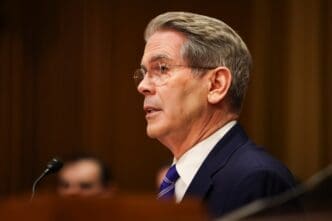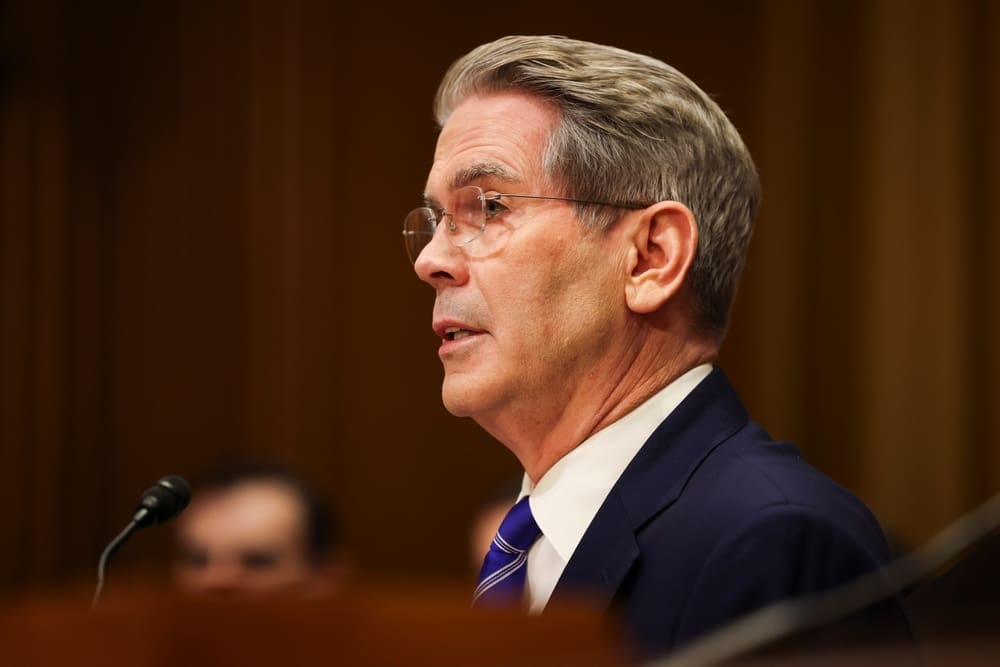Treasury Secretary Scott Bessent has expressed his lack of concern about potential inflation arising from President Donald Trump’s recent tariffs.
Bessent made his remarks on Thursday, amidst President Trump’s imposition of additional tariffs on China, Mexico, and Canada, while ensuring exemptions for the Big Three automakers and Mexican goods under the USMCA agreement. Economists have raised alarms that these tariffs could increase inflation, pressing the Federal Reserve as it attempts to bring inflation down to a 2% target.
Speaking at the Economic Club of New York, Bessent contended that any price increases would be a one-time adjustment, suggesting the Federal Reserve’s policy should not hinge on these tariffs. He invoked the term ‘transitory,’ a concept the Fed used during the onset of the COVID-19 pandemic to describe temporary inflationary pressure that did not necessitate aggressive rate hikes. However, this expectation had proven inaccurate when inflation surged to a forty-year high in 2022.
Despite agreeing not to comment on future Fed policies, Bessent hoped for a revival of the earlier ‘team transitory’ mindset, underscoring that tariffs are essentially temporary. He emphasized that President Trump is more focused on reducing the 10-year Treasury yields, which recently rose for a third consecutive day to 4.28%, still below the levels seen at the beginning of Trump’s term.
Bessent articulated that the administration aims to lower long-term borrowing costs through prudent fiscal policies, including making tax cuts permanent and ensuring there are no taxes on tips, Social Security benefits, and overtime pay. The administration is considering retroactive full expensing for capital equipment to January 20 and exploring similar measures for factories and equipment. Bessent also pointed to the potential use of tariff revenues to offset the proposed tax cuts.
Addressing international trade relations, Bessent cautioned against retaliatory tariff measures, specifically mentioning Canadian Prime Minister Justin Trudeau. He stressed the importance of dialogue with U.S. trading partners to avoid escalating tariffs and underscored a commitment to coordinated regulatory efforts among financial agencies.
Bessent’s stance highlights his belief in the temporary nature of tariffs and the importance of sound fiscal policy in managing economic growth. His remarks reflect the administration’s broader strategy of fiscal conservatism paired with strategic tax incentives to drive economic activity.
Scott Bessent’s comments reveal a clear stance towards the limited inflationary risks of tariffs and a call for strategic fiscal policies. The focus remains on mitigating economic pressures through collaboration and well-planned policy measures, reaffirming his confidence in a balanced economic approach.














